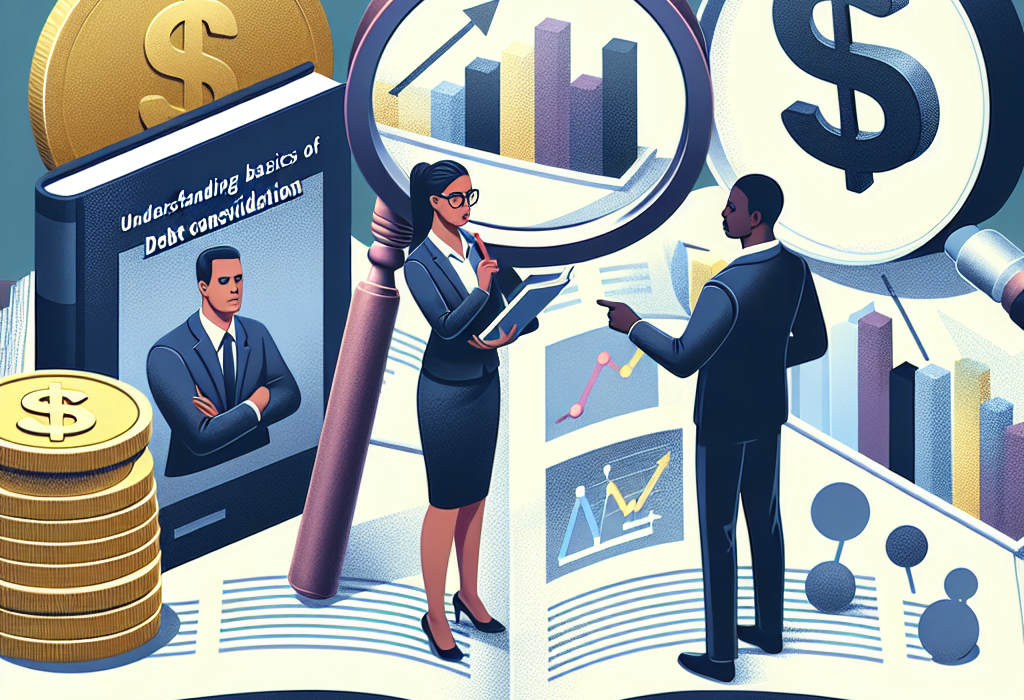Introduction
As life moves on, our purchasing behavior expands, and quite often, it leads to the accumulation of different types of debts. Such financial obligations might include student loans, car loans, or credit card debts which, when combined, can seem daunting to manage. This is where debt consolidation comes into play. A strategic solution that helps manage multiple debts efficiently, debt consolidation combines multiple debts into a single loan that one needs to repay. This article provides a detailed understanding of the basics of debt consolidation.
What is Debt Consolidation?
Debt consolidation refers to the process of combining multiple debts into a single, larger piece of debt with more favorable pay-off conditions. Typically, these might include a lower interest rate, lower monthly payment, or both. Through this process, consumers can eliminate the stress of managing multiple payment deadlines each month and keep track of their financial health more consistently.
The Debt Consolidation Process
The debt consolidation process involves taking out a new loan to pay off multiple debts. Instead of juggling a lot of payments, you only have to worry about one. For example, if you have credit bills from three different credit cards, you can take out a single loan to pay off all three. Then, you make regular monthly payments on the new loan. Ideally, the interest rate will be lower than what was collectively being paid before.
Pros and Cons of Debt Consolidation
Pros:
- Simplification: Instead of dealing with multiple payments and multiple interest rates, you only have one monthly payment to make.
- Lower Interest: Consolidation can lower the amount of interest you pay.
- Improved Credit Score: As successful payments are made, your credit score can gradually improve.
Cons:
- Risk of Falling Deeper into Debt: If you are not disciplined, you may end up accumulating more debt.
- Longer Repayment Period: While your monthly payments might be lower, it does mean that the duration of repayment may be longer.
- Higher Total Cost: With a longer repayment period, you may end up paying more in total.
When to Consider Debt Consolidation
Debt consolidation is an excellent financial tool, but it’s not for everyone. If you’re struggling with high-interest debt from credit cards or personal loans, it can help you save money and simplify your payments. However, if your debts are tied to assets like a house, car, or student loans, consolidating can make these debts more expensive. Always consider your financial circumstances, repayment capacity, and long-term financial goals before making a decision.
Conclusion
Understanding the basics of debt consolidation can open new avenues for managing financial obligations more effectively. It is a strategy that works excellent for the right situation and can save you a lot of money over time. However, it does require responsibility, financial discipline, and a comprehensive understanding of your financial situation.
FAQs
1. Is debt consolidation a good idea?
Debt consolidation can be a strategic move if you are dealing with multiple high-interest debts and you have a good credit score that qualifies for a favorable rate on the consolidation loan.
2. Does debt consolidation hurt your credit score?
The impact of debt consolidation on your credit score depends on the options chosen. Some can have a negative impact initially, but if managed efficiently, they can lead to long-term financial improvement and a better credit score.
3. How do I consolidate my debts?
You can consolidate debts either through a debt consolidation loan, balance transfer card, or by taking out a home equity loan.
4. Will debt consolidation affect my home loan application in the future?
If managed properly, debt consolidation can improve your credit score over time, which can positively impact your home loan application.
5. Can I consolidate my credit card debts with a personal loan?
Yes, a personal loan can be used to consolidate credit card debts, often resulting in lower interest rates.













